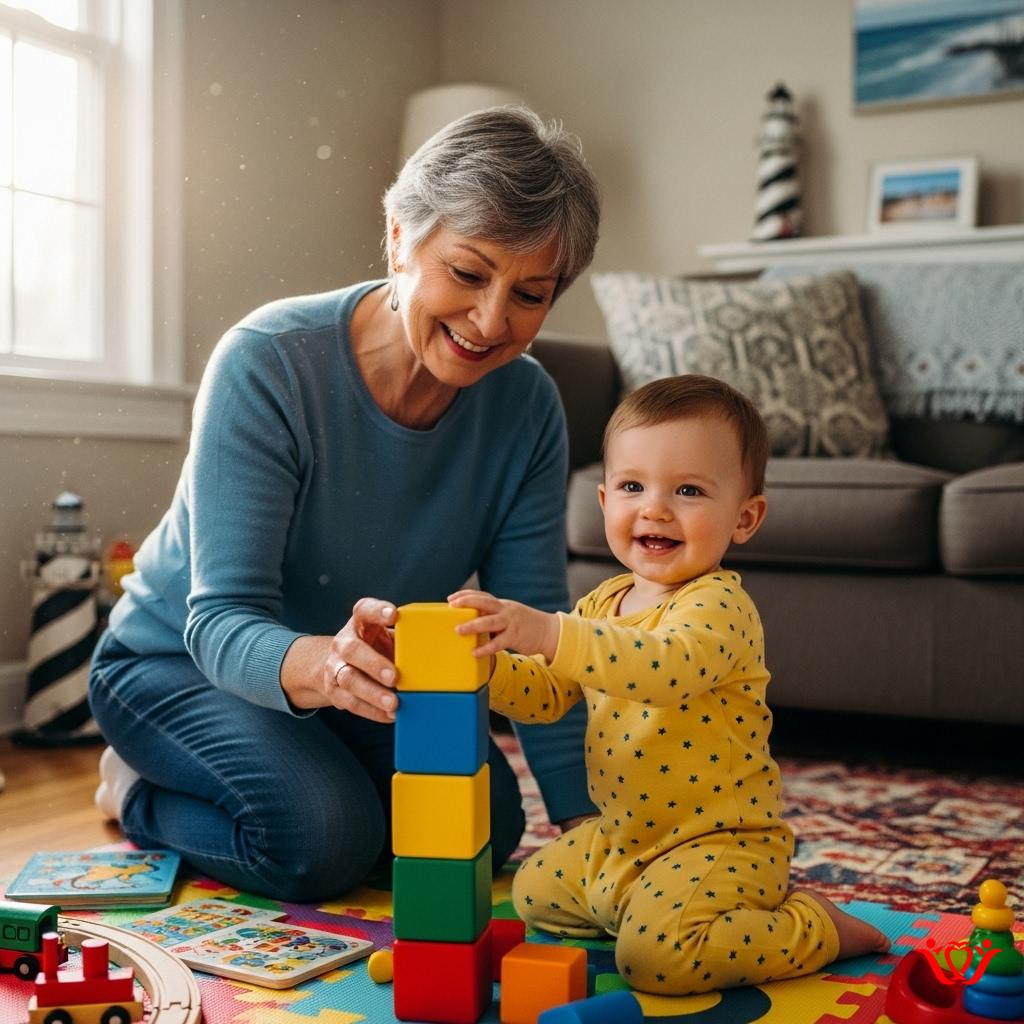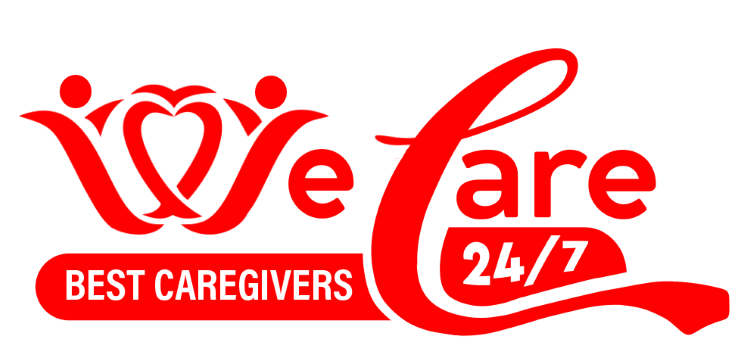NJ Child Development: Understanding Infant & Toddler Milestones for New Jersey Families

Navigating Early Childhood Development: A Guide for New Jersey Grandparents, Parents, and Caregivers
For New Jersey families, understanding the journey of a child’s early development—from the first coo to the first wobbly steps—is a remarkable and rewarding experience. Whether you’re a grandparent eager to support your grandchildren, a parent researching the best options, or a caregiver dedicated to an individual with special needs, recognizing infant and toddler milestones provides valuable insight. At WeCare Home Caregivers, we believe that informed care extends to understanding the foundational years that shape a child’s future, especially here in the Garden State.
This guide will illuminate the typical developmental pathways for children from birth to age three, focusing on key milestones across various domains. We’ll explore what to anticipate at different stages and discuss how a supportive environment, often facilitated by compassionate caregivers, can significantly impact a child’s progress. Our aim is to equip New Jersey families with the knowledge needed to celebrate every achievement and recognize when a little extra support might be beneficial.
The Importance of Milestones: A New Jersey Perspective
Child development milestones are not strict deadlines, but rather indicators that help track a child’s growth in areas like movement, language, cognition, and social-emotional skills. They represent a general timeline of when most children acquire certain abilities. For New Jersey residents, awareness of these milestones can empower families to provide optimal stimulation and ensure children are on a healthy developmental path.
Understanding these benchmarks allows parents and caregivers to tailor interactions and activities that encourage learning and exploration. It also provides a framework for pediatricians and early intervention specialists in New Jersey to identify potential delays and offer timely support, underscoring the collaborative effort in a child’s upbringing within our communities.
0-3 Months: The Dawn of Discovery
The first few months of a baby’s life are marked by rapid changes as they adapt to the world outside the womb. During this period, infants primarily develop through reflexes and sensory experiences. New Jersey infants, like those everywhere, begin to make sense of their surroundings through sight, sound, and touch.
- Motor Skills: Lifts head briefly when on tummy; brings hands to mouth; moves arms and legs actively.
- Cognitive Development: Focuses on faces; follows moving objects with eyes; recognizes familiar voices.
- Language & Communication: Makes cooing sounds; cries to express needs; calms when spoken to.
- Social & Emotional: Smiles in response to faces; looks at parents or caregivers; prefers looking at human faces over other patterns.
Simple activities, such as talking to your infant during a stroll in a local New Jersey park or singing lullabies, greatly stimulate their developing senses and encourage early communication. Responsive caregiving during these initial months lays a strong foundation for trust and attachment.
4-6 Months: Exploring Their World
As infants enter this phase, their movements become more intentional, and their curiosity blossoms. They begin to actively engage with their environment, reaching for objects and responding more distinctly to familiar faces and sounds. The world starts to open up for them.
- Motor Skills: Rolls from back to tummy and tummy to back; sits with support; pushes up to elbows/hands when on tummy; grasps objects.
- Cognitive Development: Explores objects with hands and mouth; recognizes familiar faces; looks for dropped toys.
- Language & Communication: Babbles with different sounds; laughs; responds to own name.
- Social & Emotional: Enjoys playing with others; responds to expressions of affection; shows excitement.
Encourage tummy time play on a soft blanket at home, or perhaps enjoy the sounds of a local New Jersey playground from the comfort of a stroller. Offering safe toys to grasp and mouth helps refine their motor skills and sensory exploration. These interactions are vital for their rapidly expanding awareness.
7-9 Months: Gaining Independence
This period often sees significant advancements in mobility and problem-solving. Infants become increasingly mobile, exploring their surroundings with greater autonomy. Their understanding of cause and effect becomes more evident, leading to exciting discoveries.
- Motor Skills: Sits without support; crawls; pulls to stand; transfers objects from one hand to another.
- Cognitive Development: Finds hidden objects (object permanence); looks at pictures in books; bangs two objects together.
- Language & Communication: Responds to simple spoken requests; uses ‘mama’ and ‘dada’ indiscriminately; imitates sounds.
- Social & Emotional: Waves bye-bye; plays peek-a-boo; shows stranger anxiety.
A safe, baby-proofed home environment, common practice for New Jersey families, is essential now that crawling is likely. Playing games like peek-a-boo not only brings joy but also reinforces the concept of object permanence, a key cognitive milestone.
10-12 Months: First Steps and Words
The end of the first year is a thrilling time, often marked by a child’s first independent steps and discernible words. These achievements signify a massive leap towards greater independence and more complex communication. Every small victory is a cause for celebration.
- Motor Skills: Pulls to stand and cruises along furniture; may take a few independent steps; picks up small objects with pincer grasp.
- Cognitive Development: Understands simple commands; puts objects into containers; imitates gestures.
- Language & Communication: Says first clear words (‘mama,’ ‘dada’); shakes head ‘no’; waves bye-bye.
- Social & Emotional: Shows affection to familiar people; claps hands; points to desired objects.
Encourage their newfound mobility by letting them cruise around sturdy furniture. Reading picture books together and pointing out familiar objects and actions, perhaps with books borrowed from a local New Jersey library, significantly aids language development during this formative period.
13-18 Months: The Emerging Toddler
Toddlers in this age range are developing rapidly in their physical abilities and beginning to assert their burgeoning independence. Language skills expand noticeably as they connect words to meaning and begin to express their wants and needs more clearly. Their personality truly starts to shine through.
- Motor Skills: Walks independently; climbs stairs with help; kicks a ball; builds a tower of two blocks.
- Cognitive Development: Understands and points to body parts; scribbles spontaneously; follows one-step commands without gestures.
- Language & Communication: Uses 3-5 words beyond ‘mama’ and ‘dada’; points to show what they want; responds to their name.
- Social & Emotional: Plays simple pretend games; has temper tantrums; shows affection by hugging.
Providing opportunities for outdoor play, like visiting a local New Jersey playground, helps refine their gross motor skills. Engaging in conversations, even simple ones, and responding to their attempts at communication will bolster their rapidly growing vocabulary and confidence.
19-24 Months: Active Explorers
Toddlers at this age are becoming increasingly mobile and communicative. They’re engaging more deeply with their environment and with others, demonstrating a growing sense of self. Their problem-solving abilities are sharpening, leading to more complex play.
- Motor Skills: Runs well; walks up and down stairs holding on; throws a ball overhand; stacks 4-5 blocks.
- Cognitive Development: Sorts shapes and colors; engages in imaginative play; understands the function of common objects.
- Language & Communication: Puts two words together (e.g., ‘more juice’); follows two-step commands; uses 50+ words.
- Social & Emotional: Copies others; gets excited about other children; shows defiant behavior.
Continue to foster imaginative play with dolls, toy vehicles, or simple dress-up clothes. Spending time with other children at New Jersey playgroups or community centers can help develop crucial social skills and provide valuable learning experiences.
25-36 Months: The Independent Young Child
By the time children reach their third birthday, they are well on their way to becoming preschool-ready. Their language is more complex, their motor skills refined, and their social interactions more sophisticated. They are increasingly curious and capable, ready for new challenges.
- Motor Skills: Jumps with two feet; pedals a tricycle; dresses and undresses with assistance; draws circles and vertical lines.
- Cognitive Development: Understands concepts like ‘in’ and ‘on’; does simple puzzles; identifies colors; understands quantity.
- Language & Communication: Uses 3-5 word sentences; tells simple stories; asks ‘who,’ ‘what,’ ‘where’ questions; uses pronouns (I, you, me).
- Social & Emotional: Shows concern for crying friend; separates easily from primary caregiver; takes turns in games.
Encourage storytelling and imaginative play. Trips to New Jersey children’s museums or nature centers offer stimulating environments that promote discovery and learning across various domains. Support their growing independence by allowing them to make simple choices.
Factors Influencing Healthy Child Development
While milestones provide a general roadmap, several factors contribute to a child’s unique developmental journey. A nurturing environment, proper nutrition, and consistent, responsive care are paramount. These elements collectively create the ideal conditions for a child to thrive.
- Nutrition: A balanced diet provides the essential building blocks for brain and body growth.
- Safe and Stimulating Environment: Opportunities for exploration and play, free from hazards, are vital. This includes access to age-appropriate toys and spaces.
- Responsive Caregiving: Adults who engage with children, respond to their cues, and provide consistent affection help build secure attachments and cognitive skills.
- Access to Healthcare: Regular check-ups with a pediatrician are essential for monitoring development and addressing any concerns promptly. New Jersey families benefit from a network of pediatric services and programs like NJ FamilyCare.
- Early Learning Opportunities: Reading aloud, singing, and engaging in educational play contribute significantly to cognitive and language development.
WeCare Home Caregivers understands the significance of a supportive home environment. Our professional caregivers, serving communities across New Jersey, are attuned to the needs of families, providing assistance that can help create a stable and enriching atmosphere for children and their loved ones.
When to Seek Professional Guidance: New Jersey Early Intervention System
While children develop at their own pace, it’s also important to know when to seek professional advice. If you notice consistent delays in several areas, or a loss of previously acquired skills, consulting your child’s pediatrician is always the first step. They can assess the situation and provide appropriate referrals.
In New Jersey, a crucial resource is the New Jersey Early Intervention System (NJEIS). This system provides services to children from birth to three years old who have developmental delays or disabilities. If a child is found eligible, NJEIS can connect families with a range of services, including therapy, special instruction, and family training, all at no cost to the family. Early intervention has been shown to significantly improve outcomes for children and their families.
Signs that might warrant a conversation with your pediatrician include, but are not limited to, a child not responding to sounds or smiling by 4 months, not babbling by 9 months, not walking by 18 months, or losing skills they once had. Remember, early support can make a profound positive difference.
The Vital Role of Caregivers and Family Support
Grandparents, parents, and professional caregivers play an indispensable role in a child’s development. Their presence offers a constant source of comfort, learning, and encouragement. Grandparents in New Jersey can share wisdom, stories, and engage in playful activities, enriching a child’s cultural and emotional landscape.
Adult children often find themselves navigating complex care decisions, whether for their aging parents or for a child with developmental needs. Understanding milestones allows them to better advocate for their loved ones and make informed choices about educational and care services. WeCare Home Caregivers is here to provide reliable assistance, ensuring that families have the support they need to focus on what matters most.
Our dedicated caregivers in New Jersey offer more than just practical assistance; they provide companionship and a helping hand that creates a nurturing environment. They can assist with daily routines, provide engaging activities, and support family dynamics, ensuring that children receive consistent, quality care, allowing parents and grandparents to participate fully in a child’s joyful journey.
WeCare Home Caregivers: Supporting New Jersey Families
Understanding infant and toddler milestones is a powerful tool for promoting healthy development. It empowers New Jersey families—grandparents, parents, and dedicated caregivers—to be active participants in a child’s growth. Every child’s journey is unique, and celebrating each milestone, big or small, reinforces their progress and builds their confidence.
At WeCare Home Caregivers, we are committed to supporting New Jersey families through every stage of life. Whether you need assistance for an aging loved one, support for family members caring for individuals with disabilities, or simply professional in-home care, our compassionate team is here. We believe in providing comprehensive care that enables all family members to thrive within their home and community environment.
For more information on how WeCare Home Caregivers can assist your family in New Jersey, please visit our website or contact us directly. We are dedicated to delivering the highest standard of professional, trustworthy care right here in the Garden State.



